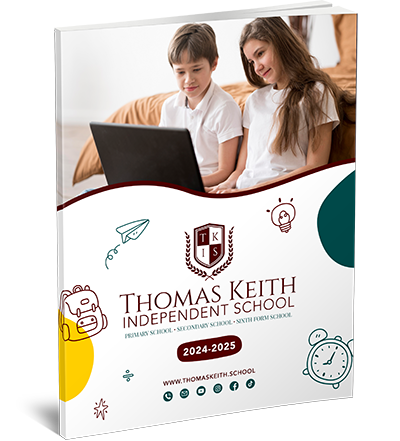
The Importance of Homeschooling for GCSE Preparation: Empowering Students for Success
Students’ educational and career paths are shaped by the UK’s GCSE exams. Homeschooling for GCSE preparation is growing as these tests become more important. Homeschooling’s personalised, flexible, and student-centred approach can help GCSE students. This home schooling gcse is vital for GCSE preparation, and this article will delve into the reasons behind its significance.
Homeschooling for GCSE preparation offers individualised learning. Traditional schools have limited time and resources to meet each student’s needs. Homeschooling gives kids personalised, one-on-one teaching. This personalised learning experience helps students understand and conquer the GCSE curriculum by focusing on their strengths and limitations.
Homeschooling allows kids to set their own learning pace and timetable. This helps GCSE students focus on complex subjects. Homeschooling accelerates learning in subjects students understand well. This flexibility allows students to own their education and optimise their study habits.
Another benefit of homeschooling for GCSE preparation is curriculum customisation. Traditional schools’ curricula may not match students’ interests, aspirations, or learning styles. Homeschooling lets families adjust the curriculum to the student’s needs and goals. They can check resources, textbooks, and learning materials to the student’s learning style, making learning more engaging and successful.
Homeschooling provides personalised attention and support. Traditional schools have too many students for teachers to give personalised attention. Homeschooling allows parents or tutors to provide rapid criticism, clarification, and assistance. Individual attention enables students to ask questions, seek clarification, and investigate topics more thoroughly.
Traditional schools often come with distractions such as noise, peer interactions, and social pressures that can hinder students’ focus and productivity. Homeschooling eliminates many of these distractions, helping students to study better. Focus improves memory, productivity, and study time. Homeschooled GCSE students can build a calm and comfortable learning environment to maximise their learning.

Successfully passing GCSE exams requires good preparation. Homeschooling lets students prepare for exams in their preferred way. Exam-style questions, old papers, and targeted revision can be practised. Homeschooling allows students to spend more time on challenging courses, ensuring they are well-prepared for GCSE exams.
Homeschooling encourages self-directed learning, which is helpful beyond GCSEs. GCSE homeschoolers gain initiative, time management, and self-discipline. They make goals and take charge of their education. These traits help students succeed in exams, academics, careers, and life.
Homeschooling supports student well-being. Learning at their own pace reduces stress and anxiety caused by strict deadlines and high-pressure circumstances. Homeschooling gives kids more time for hobbies, extracurriculars, and family. This comprehensive education improves students’ mental and emotional well-being, making learning more enjoyable.
Homeschooling for GCSEs has many benefits that empower students. GCSE students should homeschool for the individualised learning experience, flexibility in learning pace and schedule, customised curriculum, individual attention and support, reduced distractions, enhanced focus, tailored exam preparation, and promotion of self-directed learning. Homeschooling helps kids master the GCSE curriculum, develop vital skills, and feel confident in their tests, preparing them for future academic and career success.
Homeschooling lets kids gain GCSEs in a flexible, personalised setting. As students take ownership of their education, they must grasp how to prepare for GCSEs while homeschooling. This article will discuss how homeschooled children and parents can succeed in GCSE exams.
GCSE preparation requires an organised study schedule. Create a regular study regimen for each subject. Routines assist in preserving discipline, assure regular revision, and cover all courses. Allow breaks and flexibility in the study regimen to maximise efficiency.

Familiarise yourself with the GCSE curriculum and exam requirements for each topic. The curriculum covers essential concepts and skills. Get GCSE-aligned textbooks, study guides, and tools. Understanding the curriculum can help you arrange your studies and prioritise.
Outline each subject’s topics, subtopics, and skills. Divide the material into digestible bits and schedule study time for each. Consider the topic’s intricacy and the student’s pace when estimating time. A well-structured study schedule will ensure systematic curriculum coverage and effective review before exams.
Homeschoolers can use a variety of instructional resources. Utilise a variety of resources like books, films, interactive websites, and past papers. These tools offer alternative viewpoints, explanations, and practice to improve comprehension and recall. Try many resources to locate one that suits the student’s learning style.
Active learning improves comprehension and retention. Note-taking, summarising, mind maps, and debates can replace passive reading and memorisation. Solve practice issues, apply information to real-life situations, and teach others. These methods aid comprehension and subject mastery.
Seek External Support: Homeschooling students benefit from outside support. Consider online classes, study clubs, co-ops, or subject-specific instructors. These resources offer expert advice, peer interaction, and more. Tutors can help with individual problems, practice papers, and coursework.
GCSE preparation requires prior papers and mock exams. Past papers reveal exam format, question style, and complexity. Simulate test conditions by solving past papers under timed settings. Analyse mistakes and learn. Mock tests help evaluate progress, boost confidence, and identify areas for review.

Develop Effective Exam Techniques: GCSE preparation includes topic knowledge and exam skills. Learn the exam format, structure, and mark scheme. Learn how to manage time during tests, give each question enough time, and answer clearly. Timed writing improves speed and accuracy. Understanding exam expectations and using efficient exam procedures will improve performance on exam day.
Prioritise physical and mental health: While preparing for GCSEs, maintain health and energy through regular exercise, a balanced diet, and enough sleep. Relax during study breaks. Maintain a healthy work-life balance by relaxing with hobbies, creative projects, or friends. Good health improves concentration, memory, and academic success.
Regular Assessments and Feedback: Assess progress and get feedback to improve. Quizzes, self-tests, and tutor assessments can assess comprehension and retention. Adjust the study plan based on feedback. Regular tests and feedback help students track progress, rectify shortcomings, and improve exam preparation.
Finally, homeschooling GCSE preparation involves strategy, organisation, and discipline. Students can succeed in GCSE exams by establishing a structured study routine, understanding the curriculum, creating a comprehensive study plan, using diverse learning resources, engaging in active learning strategies, seeking external support, practising past papers, developing effective exam techniques, prioritising well-being, and implementing regular assessments. Homeschooling provides the freedom and individualised approach students need to succeed in their GCSEs and build a solid foundation for their academic and career goals.







